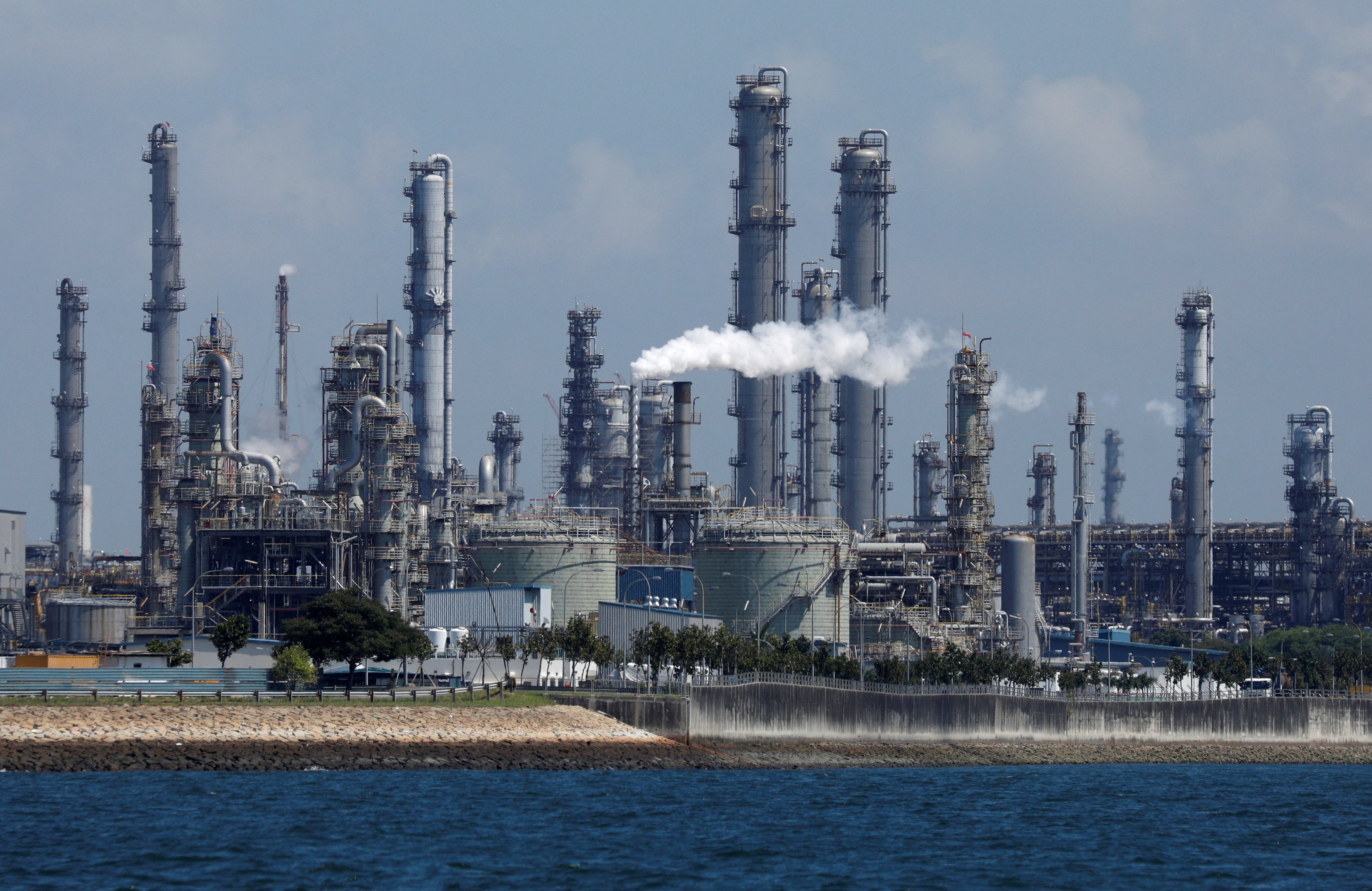[ad_1]

A general view of Shell’s Pulau Bukom petrochemical complex in Singapore July 15, 2019. REUTERS/Edgar Su/File Photo Acquire Licensing Rights
SINGAPORE, Dec 6 (Reuters) – Shell (SHEL.L) has shortlisted at least four companies including state-run China National Offshore Oil Corp (CNOOC) and top global energy trader Vitol as bidders for its Singapore refinery assets, sources with knowledge of the matter said.
Two privately controlled Chinese chemical producers – Eversun Holdings in Fujian province and Shandong province-based Befar Group – were also shortlisted, sources said.
The companies have been asked to submit formal bids by the end of February, two of the sources said. Two sources also said Shell aims to close a transaction by the end of 2024.
The assets include a 237,000 barrels per day (bpd) refinery and a one million metric ton per year (tpy) ethylene plant on Singapore’s Bukom island. Shell announced a strategic review of the assets in June and sources have previously said that Goldman Sachs has been hired to manage a potential sale.
Reuters spoke with six sources for this article. All declined to be identified as the deal discussions were confidential.
It was not clear how much Shell is seeking for the assets.
A Shell spokesperson said that following the company’s strategic review “divestment is our priority focus now.” The spokesperson declined to comment on potential suitors for the assets or a timeline for the sale.
Goldman Sachs declined to comment. CNOOC, Vitol, Befar and Eversun did not respond to requests for comment.
When Shell’s Bukom facility opened in 1961 it was Singapore’s first refinery and was once Shell’s biggest refining-petrochemical complex globally.
A buyer of the assets on Bukom and Jurong islands would gain a foothold in Asia’s main oil trading hub but would also face competition from newer refineries in China and elsewhere. The buyer would also have to contend with an expected sharp rise in Singapore’s carbon tax in 2024 that would add to the costs of running the plants.
China’s Wanhua Chemical (600309.SS), which Reuters reported in October was among companies making early evaluations of the assets, did not submit an initial bid, two of the sources said.
POTENTIAL STORAGE HUB?
CNOOC, which has a long-term partnership with Shell in a petrochemicals venture in south China, has been looking to boost its downstream portfolio and expand its global oil and chemicals trading, said a person familiar with CNOOC’s thinking.
“But still, CNOOC will face internal scrutiny as all Chinese state-owned enterprises face the pressure from Beijing to add value to assets, rather than lose,” said the person. “So price will be the key,” the person added.
For Switzerland’s Vitol, Shell’s Singapore site may be attractive as an oil storage and distribution hub.
“Trading companies could be considering purchasing Shell’s Bukom assets for the tank storage and marine terminals if it is more cost-effective in the long-term compared to leasing third-party storage,” said Ivan Mathews, head of Asia refining at analytics firm FGE.
“Moreover, it provides more trading and operational flexibility compared to leasing due to ownership of tanks and terminals,” he added.
Vitol posted a record $15 billion profit last year and has invested in over 500,000 bpd of refining capacity in Malaysia, Australia, Europe and the Middle East.
The other two shortlisted companies are much smaller and lack experience investing outside China.
Eversun is set to schedule a site visit around end-December or early January, a source familiar with the company said.
Asian firms operating refinery-petrochemical complexes are profiting from refined products. But petrochemicals such as ethylene glycol and styrene monomer – feedstocks for plastics and synthetic fibre produced at plants such as Shell Bukom – have not been profitable for the past two years, analysts say.
A report by Wood Mackenzie said that 2022 net cash margins for Shell’s Bukom assets were below a global weighted industry average of $14 a barrel for the company’s integrated refinery-petrochemical complexes, while ethylene production costs were among Shell’s highest globally.
($1 = 7.1366 Chinese yuan)
Reporting by Chen Aizhu and Trixie Yap; Editing by Tony Munroe and Edwina Gibbs
Our Standards: The Thomson Reuters Trust Principles.
[ad_2]
Source link
